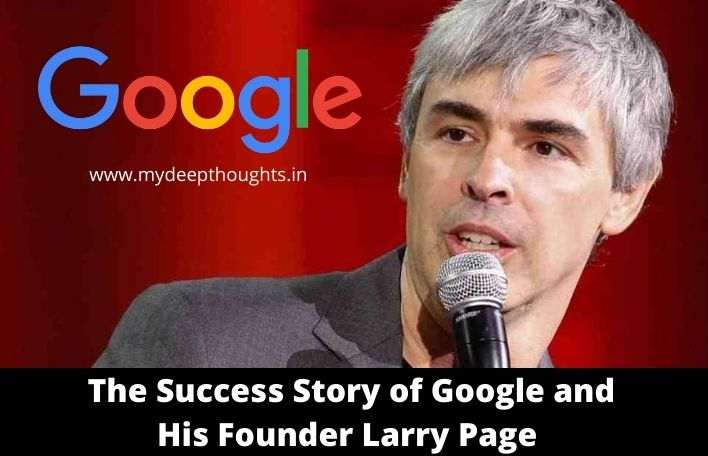When there is a great dream, you must catch it—Larry Page
The history of google
In today’s world if we hear about search engines the 1st name that comes to our mind is Google. Google search was created by several Stanford University Ph.D. students Larry Page and Sergey Brin in early 1996. They designed and planned a search engine that accurately analyzes the relationship between URLs. The search accuracy of this engine is better than the basic search technology applied at that time. At that time, the project was called BackRub. because the system would check backlinks to assess the necessity of station names. Here this article is based on the history of Google and the Larry page.
The history of Google is very interesting. Google Inc. was established on September 4, 1998, co-founded by Larry Page and Sergey Brin, and is recognized as the world’s largest search engine company. Google is a multinational technology company located in the United States. Its business includes Internet search, cloud computing, advertising technology, etc. It also develops and provides a large number of Internet-based products and services. Its main profit comes from advertising services such as AdWords.
| Company Name | |
| Established | September 4, 1998 |
| Headquarter | Mountain View, Santa Clara County, California, U.S |
| Number of employees | 98771 (2018) |
| Co-founder | Larry Page, Sergey Brin |
| CEO | Sundar Pichai |
| Parent company | Alphabet Inc |
| Annual turnover | US$161.857 billion (2019 |
The History of Google’s Founder Larry Page
When we talk about the history of google the 1st name that will come to our mind is the founder of Google. Larry Page is one of the founders of Google and officially became Google’s CEO on April 4, 2011. In 2013, Larry Page was selected as the most influential CEO under the age of 40 in the United States 2013. And ranked 20th on the Forbes 2013 Global Rich List with $23 billion in assets. In 2016, Larry Page topped the list of “The Most Influential People in the World 2016” by Forbes magazine.
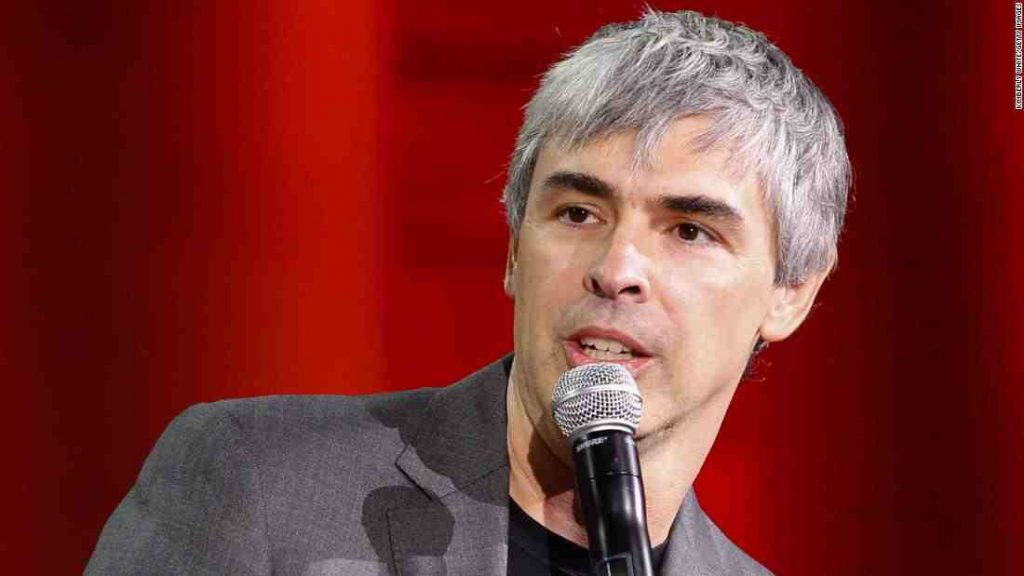

At the age of 23, Page once had a dream about downloading the entire Internet, but only keeping links. After waking up from the dream, he spent a long time describing the details of the dream. And he firmly believed that what he had was not just a dream. It would eventually come true in the future. Although he had not thought about the concept of building a search engine at the time. This dream planted the seeds for the birth of Google.
Meeting of Page and Brin
In 1996, Page entered Stanford University to study. During his Ph.D. in computer science, he met Sergey Brin. Since then, two close partners have embarked on their brilliant career journey.
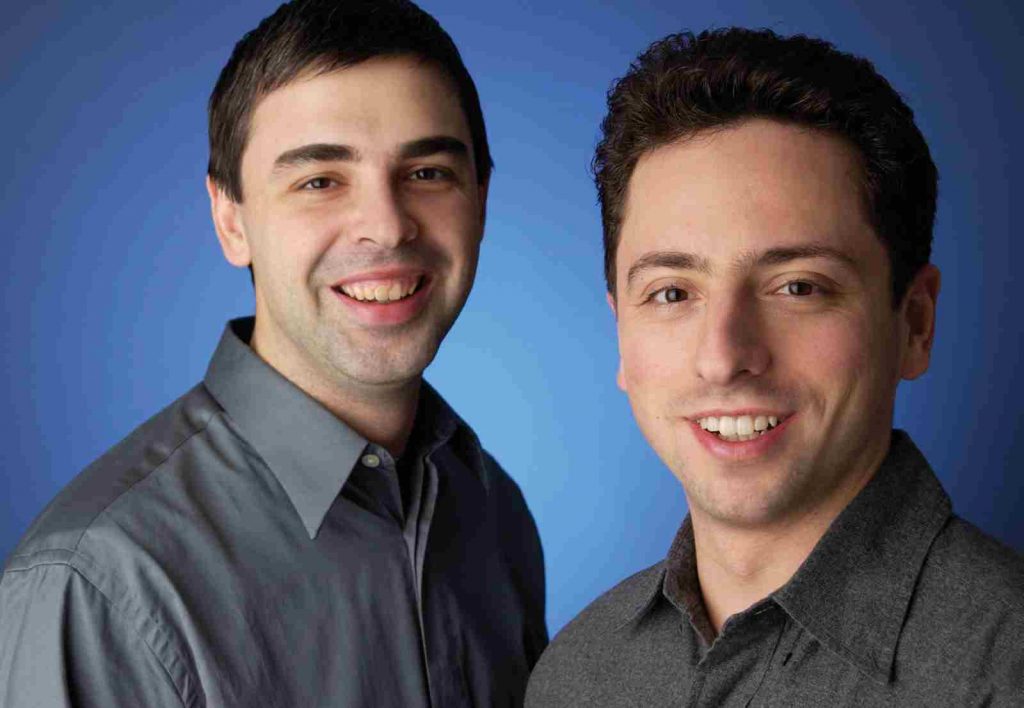

Stanford University has a gathering of elites and fierce competition. In order to complete his doctoral dissertation, Page “killed” more than a dozen very interesting ideas. And determined the topic of the thesis as the rapidly developing Internet at that time. In the process of writing the paper, Page consulted a large number of computer and Internet materials. Which will also be of great benefit to his future development direction.
Of course, like all entrepreneurs, Page’s start has not been smooth sailing. Before Google officially came out, Page and Brin did a lot of trials and preparations. Page said in a speech at Michigan State University: “Do you know what it’s like to wake up from a realistic dream at midnight? You know that there is a flash of light, but there is no pen and paper beside the bed. The next day What if I forget everything in the morning?”
Collaborated with Search Engine ‘Backrub’ – (History of Google)
Initially, Page and Brin collaborated on a search engine called “BackRub”. After two years of improvement, the two collaborated to develop Google’s online search engine in 1998. There were already several search engines on the market at the time, but these search engines all faced a problem. Which was that they would always display irrelevant lists.


The search engine developed by Page and Brin completely changed this situation, highlighting relevant and more meaningful results. And quickly disseminating them to information searchers around the world. Unlike the cold reception Mark Zuckerberg received at Harvard University, Page and Brin became legends at Stanford University.
Establishment History of Google
It seems that they are not far from running a formal company. However, lack of funds has become a major problem. In order to raise start-up funds, Page and Brin rushed around, and finally borrowed a precious $1 million. In September 1998, Google was formally established in California.


At first, Google had only 3 employees, and it increased to 8 after half a year. Today, even a small company has more than 8 employees. At the time, these 8 employees were the backbone of Google’s operations. Who would have thought that the number of employees in a small company of 8 people would have reached more than 50,000 today?
In fact, before the founding of Google, Page and Brin had found one of the founders of Yahoo, David Philo. Philo affirmed the ideas and technologies of Page and Brin. He also suggested that they establish a search engine company. Develop an independent business.
Competition History of Google With Other Search Engines
From today’s Internet situation, search engines are not only our work and life assistants. But also a kind of entertainment tool. With the emergence of search engines such as Yahoo and Baidu, modern people have become the “search generation. At the end of the 20th century, in the era when computers were not even popular. All of Page’s behavior seemed to be a repetition of his dream.
In just two years, under the leadership of Page, Google has developed into the world’s largest Internet search engine. And Yahoo has also chosen Google as the default search result provider. Seeing that Google’s wings are becoming more and more prosperous. The former Internet giants have become restless, and they all put the development of their own search engines on the agenda. But it was too late, and Google was already at the forefront of search engines.
Rising History of Google
Buffett, a legendary stock market investment genius, and the shaper of Berjaya’s business in the US, his every move will affect the trend of the global market. All of Buffett’s investment philosophy is well in mind. Page is not limited to owning a Google. What he wants to do is to become the Buffett of the technology industry.
Around 2000, with the bursting of the Internet bubble, countless Internet companies experienced great turmoil in history, but the development of Google has not been greatly affected. In the following ten years, Google continued to introduce new products. Launched Google News, Google Maps, Android mobile phone OS, and other excellent products. And also set foot in SNS and other Internet services in a variety of ways.
(2001)
In September 2001, Google’s PageRank web rating mechanism was granted a US patent. The patent was officially issued to Stanford University, and Larry Page was listed as the inventor.
(2004)
In February 2004, because Yahoo gave up using the Google search engine and decided to develop its own search engine independently, Google’s market share fell.
On August 19, 2004, Google was listed on the Nasdaq Stock Exchange. Later, under the radical leadership of Page and Brin, Google has been pursuing innovation with a tireless attitude. For the tireless Googlers, it seems that there is no limit to innovation.
(2005)
On July 19, 2005, Google announced the establishment of a research and development center in China.
On December 20, 2005, Google announced that it would spend US$1 billion to acquire a 5% stake in the Internet service provider ” America Online .”
(2006)
On February 15, 2006, Google registered and established a branch company “American Business Tech International Co., Ltd.” in Taiwan, and served as the domain name operator of Taiwan servers.
In October 2006, Google acquired the audio-visual content-sharing website YouTube for US$1.65 billion, which was the largest acquisition since the establishment of Google
(2007)
On November 5, 2007, Google announced the development of an open-source mobile phone operating system based on the Linux platform and named it Android.
(2008)
On September 7, 2008, the Google Maps satellite was launched into the sky to provide 50 cm resolution high-definition photos for the Google Maps service
(2012)
In May 2012, Google acquired Motorola Mobile for $12.5 billion.
On June 28, 2012, the Google I/O Developer Conference opened in San Francisco, USA, and released the operating system Android 4.1 code-named “Jelly Bean”, Google’s first self-branded tablet Nexus7, social streaming media player NexusQ, and concepts Smart glasses ” Google Glass “
In September 2012, Google China announced that it would stop providing music search services in the Chinese market. Since then, the service portals provided on “Google. cn” only include time benefits, translation, and shopping.
On the 8th, Google acquired VirusTotal, a network security startup company, in order to enhance protection measures for its own Internet services.
On October 2, 2012, Google surpassed Microsoft to become the world’s second-largest technology company by market value. On that day, Google’s market value expanded to approximately US$249.9 billion.
On December 2, 2012, Google spent US$17 million to acquire an e-commerce storage service company called BufferBox. The company’s services mainly solve the “last mile” problem of shopping package delivery
(2013)
In March 2013, Google entered the e-commerce industry to promote shopping express services. In the same year, Google China Taiwan data center began operations, with a total construction cost of about 300 million US dollars; Google China Hong Kong data center is under construction. Google said that from the perspective of overall energy consumption, the company’s data center will save 50% of energy compared to other competitors’ data centers. Google’s data center mainly provides services for the products of dozens of companies such as Facebook, Amazon, Microsoft, Yahoo, etc.
(2014)
On August 12, 2014, Google announced that it would cooperate with five other companies to build a US$300 million Pacific submarine optical cable system to help Asian users obtain faster Internet speeds
(2015)
On February 4, 2015, Google announced that it had just acquired Launchpad Toys, a developer of children’s cartoon applications, hoping to expand the children’s mobile application market. Google said that this is “the first Google product designed for children”. On the 24th, Google officially released YouTube for Android and iOS.
On February 26, 2015, Google officially launched Android for Work, with security management provided by BlackBerry.
In March 2015, Google obtained a patent for smart contact lenses, and Google took out its own smart contact lenses, using a multi-layer design and a chip developed by Google itself
(2018)
In March 2018, Google bought the Chelsea Market building from Jamestown for US$2.4 billion
(2021)
In June 2021, Google announced that it had officially joined the O-RAN Alliance.
Business History of Google
On October 25, 2014, Google CEO Larry Page handed over the leadership of Google’s core products to Vice President Sundar Pichai. Pichai is also the head of Google’s Android, Chrome, and applications business.
On August 10, 2015, Google announced that it would reorganize into a new holding company Alphabet, and adopt a new operating structure to separate its search, YouTube, and other online subsidiaries from the R&D investment department. At the same time, Google announced that Alphabet would become the name of the new holding company.
On October 2, 2015, Google announced the reorganization of the holding company, and Alphabet became Google’s successor. Starting from the first quarter of 2016, Alphabet has been divided into two parts, Google and other businesses.
The Detailed Business History of Google
Google search engine
The main search services of the Google search engine are: web pages, pictures, music, videos, maps, news, questions, and answers
Google Web API
Google Web API (web application program interface or web service) is a public interface provided by Google for registered developers. Using Simple Object Access Protocol (SOAP, simple object access protocol), programmers can develop search services and perform searches based on Google search results. Data mining. In the same way, webworms can also access the page cache and make suggestions to the page.
Google Book Search
In August 2004, Google began to provide a new service called Google Print, which has now been renamed Google Book Search. The tool can provide the search results of the book content provided by the content publisher on the search page, and provide web pages linking to the purchase of books and content-related advertisements
On November 17, 2005, Google changed the name of this service to Google Book Search.
Google Mars
Google released an online service called Google Mars to commemorate the birthday of the astronomer Percival Lowell (March 13, 1855-November 16, 1916).
Google Map
Google Maps provides a variety of map services, including partially detailed satellite photos.
Google Moon
On July 20, 2005, Google released an online service called Google Moon to commemorate the 36th anniversary of the Apollo 11 landing on the moon on July 20, 1969. This service is based on the previously released Google Maps, and the satellite data comes from NASA.
Google web directory
The Google web directory is a directory collection that includes web pages in multiple languages around the world.
Google Answers
In April 2002, Google launched a new service called “Google Answers”. Google Answers is an extension of the traditional search function-users don’t have to search for content by themselves, they ask experts to search and then pay. Customers ask questions and provide a corresponding price for the questions, and then the researchers answer their questions.
Google Local
On September 5, 2005, Google launched a local search service in China. Even the address was also localized. Google Local Search: Find local companies and services. The English version is Google Local. Google Local is already running in the United States, the United Kingdom, Japan, and Canada. China is the fifth country where Google has launched this service, and the Chinese version is Google Local. MapABC is a domestic company that provides maps for the Chinese version of Google’s local search.
Google Scholar
In November 2004, Google released “Google Scholar”, a search engine for academic literature resources. Search results are ranked according to “relevance”, which is very similar to the PageRank used by Google’s website. On January 11, 2006, Google announced the expansion of Google Scholar Search to the field of Chinese academic literature.
Google Special
This search service provides search services in four special areas including the US government, Linux, BSD, Macintosh, and Microsoft.
Friend Connect
It allows webmasters to add some social functions to their websites. All work only needs to copy and paste a few pieces of code without complicated programming skills. Friend Connect enables users at any location on the Internet to realize simple interconnection and makes the concept of “any application, any website, and any friend” a reality.
Google Video
On January 25, 2005, Google launched the Google Video service, which can search for various video files or broadcast TV programs on the Internet through the Google website. Google Video provides related video content download or playback connections based on keywords and provides a preview screen of the video content. In October 2006, Google acquired YouTube for US$1.65 billion. After acquiring YouTube, the company integrated Google Video resources into the former.
iGoogle
iGoogle can create a personalized homepage so that you can quickly and quickly browse important information on Google and the Internet. Users can select and organize content on this custom web page.
On November 2, 2013, Google’s personalized homepage iGoogle was officially closed.
Google Street View
Google announced the “Street View” feature of Google Maps at the Where 2.0 conference. The “StreetView” function allows users to browse real-life pictures of streets on Google Maps as if they are on the ground.
Google Wave
According to Google’s statement on Google I/O on May 27, 2009, it is “a personal communication and collaboration tool.” It is a web-based service, computing platform, and communication protocol designed to merge email, instant messaging, wiki, and social networks.
Google Translate
Google’s free online language translation service can instantly translate texts and web pages, but the function needs to be improved.
Boutiques online store
Boutique’s online mall is a personalized women’s clothing shopping site.
Google+ (Google Plus)
Google+ integrates Google’s online products as the basis of a complete social network.
Google Ngram Viewer
This new search tool allows you to search and compare the frequency of occurrence of up to 5 words in published books (in the Google database). Support English, Simplified Chinese, German, French, Hebrew, Russian, and Spanish.
Google Flight Explorer
Google first launched a new feature Google Flight Explorer, users can first select the airport, region, or city of departure, and then the feature will actively recommend travel destinations for users.
Google Play App Store
In 2014, Google plans to launch the Google Play application store for the Chinese market, hoping to gain greater influence in the Chinese market. In the current Chinese market, about half of users use Google’s Android mobile operating system.
Google Shopping
On December 16, 2014, Google plans to add a “Buy Now” button to the Google Shopping List service, as well as a two-day delivery service.
Google Glass
Google Glass is an “extended reality” glasses released by Google at the 2012 I/O Conference in April 2012. It has the same functions as a smartphone. It can control photos, video calls, and direction through voice control. As well as surfing the Internet, processing text messages and e-mails, etc.
Google Nexus
In the early morning of June 28, 2012, Beijing time, at the Google 2012 I/O Developer Conference, the long-rumored Google’s first tablet Nexus 7 was finally unveiled: only the front camera, which is thinner and lighter than Amazon’s Kindle Fire, The lowest price is 199 US dollars.
Google self-driving car
Google released their self-driving car, which can drive autonomously without manual control.
Gmail
Gmail is a Google mailbox service. On February 14, 2007, Google ended the Gmail test period and officially opened its registration to the public.
Blogger
Blogger is a blog system. In 2003, Google took over Pyra Labs and its Blogger service.
Adsense
Adsense is a Google keyword self-service system that allows users to choose a template to set up their own domain name keyword ads.
Orkut
Orkut is a service provider, it is created and maintained by Google engineers. It is a social network service. In Orkut users can leave their personal or professional information, create relationships with friends, or join a virtual society because of shared interests.
Notebook
Google Notebook is a service that allows users to conveniently store and organize data collected from the Internet, and use its sharing function to allow users to make their notes open to others for viewing.
Picasa
On July 13, 2004, Google took over Picasa development company software, Picasa software can manage and share digital images. Picasa is also integrated into Google’s Blogger. It is free and provides full support for the Chinese.
Google Chrome
It is an open-source web browser developed by Google.
Google Desktop
In the second half of 2004, Google launched this desktop search tool. This tool is mainly used to search for MS Office and TXT documents on the hard disk of the computer on which the software is installed.
Google Toolbar
Google Toolbar is a free IE plug-in. Features include searching and viewing relevant page information at any time without opening the Google webpage; viewing Google’s PageRank for webpages; preventing automatic pop-up windows; automatically filling in forms; and using different colors to identify keywords.
Google Web Accelerator
On May 4, 2005, Google launched Google Web Accelerator. It is software designed for broadband connection. This software can use Google’s servers located all over the world to speed up the access of web pages. Its principle is similar to that of broken web software. By setting up a local proxy, the browser connection request is realized through this proxy access.
Google SketchUp
Google announced the acquisition of 3D drawing software SketchUp and its development company @Last Software on March 14, 2006. SketchUp is a 3D drawing software known for its simplicity and ease of use.
Google Talk
This is Google’s instant chat software, released on August 24, 2005. The original user must have a Gmail account to log in and use this software, but it has been opened to all users.
Google Pinyin input method
On April 2, 2007, Google released the Google Pinyin Input Method; on October 25, it became one of Google’s official products.
Google Earth
Google Earth is a virtual globe software developed by Google, which arranges satellite photos, aerial photography, and GIS on a three-dimensional model of the Earth.
Google Chrome OS
Chrome OS is a PC-based operating system officially announced by Google that it is in development. Google Chrome OS is an open-source operating system based on Linux.
Android
Android is an operating system based on the open kernel of Linux. It is a mobile operating system announced by Google on November 5, 2007. In the early days, it was developed by a company formerly named “Android”. After Google acquired “Android. Inc.” in 2005, it continued to develop and operate the Android system.
Google Wallet
Google is developing the “Google Wallet”.
Google Reader
Google Reader was launched in 2005 to make it easier for people to discover content, but its usage has declined in the past few years. Google recommends that users immediately use Google Takeout to export subscription data.
Google Security Key
On October 21, 2014, Google announced the launch of a new account security protection method. Users can obtain physical USB Keys from third-party providers through this so-called “Security Key” support service. Cooperate with Google Accounts and Chrome to protect account security.
Project Fi
On April 23, 2015, Google officially launched Project Fi, a virtual operator service in the United States, which can switch between cellular networks and WiFi hotspots to control data usage and reduce call charges
Launching of Gmail and Google Map History
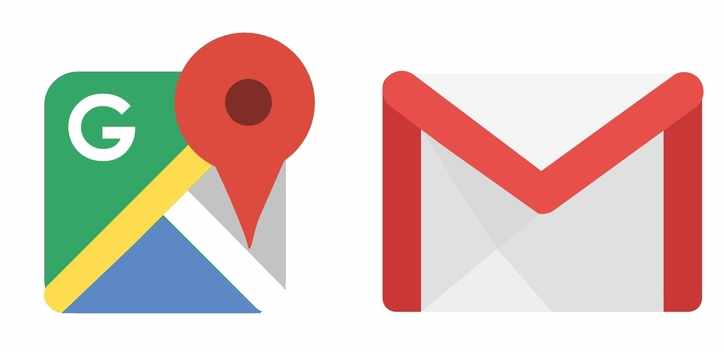

In 2004, Google extended its reach to industries other than search engines. For the first time, launched Gmail, a free mailbox with 1,000 megabytes of space. One stone caused a thousand waves of waves. Once Gmail was launched, it put tremendous pressure on Internet giants such as Yahoo and Microsoft. Although both Yahoo and Microsoft took active countermeasures, it still provided Gmail with a chance to catch up.
According to data from the American market research company ComScore, in 2013, Gmail’s global market share officially surpassed Hotmail, ranking first. In the same year 2004, a company called Keyhole which specialized in producing satellite images was acquired by Google. The following year, Google released Google Maps.
The map solution it provides redefines the electronic map and virtually brings more traffic to Google search.
History of Google Acquired YouTube
In 2006, Google acquired YouTube. A video website with advertising value was founded by Chinese American Chen Shijun and others, for US$1.65 billion.
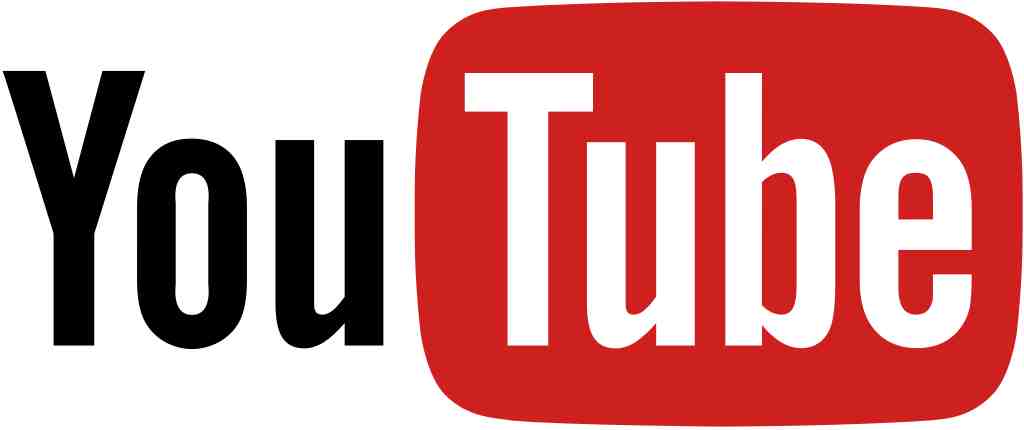

Although many people were not optimistic about Google’s series of acquisitions at the time. The fact is just the opposite, and Google has made a lot of profits. The page has always hoped to build a handheld computer that can carry Google’s services into the pockets of everyone in the world.
History of Google-Bought Android
By coincidence, Android, founded by Andy Rubin, was about to be sold in 2005, and Google bought it. Android is called Android in Chinese, and the mobile phone control family must be familiar with this name. It is an operating system designed for handheld devices.


Android is an open-source project, and Google is the first company to use Android. When Steve Jobs released the first-generation Apple iPhone in 2007, Google also showed the outside world the Android operating system and announced that it would establish a global alliance.
Subsequently, the era of smartphones came. The closed system represented by Apple and the open Android camp with Google as the core divided the world. For this reason, Steve Jobs and Larry Page became direct competitors. At present, the Android system has surpassed Apple’s iOS system and has become the world’s largest smart operating system. It has to panic its competitors. Jobs of the year are called “admiration.”
Acquisition of Motorola by Google
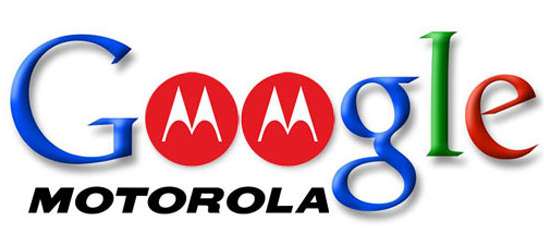

Since Page took over Google in 2011, he has been more enthusiastic about pushing Google into areas other than online advertising. According to statistics, in the three years since Page was re-elected Google’s CEO, the engineer who graduated from Stanford University has shown extraordinary talents in corporate management. He led Google to conduct a total of 127 transactions with a total value of $17.6 billion. One of the largest transactions was the acquisition of Motorola by Google for a total of $12.5 billion in August 2011. Larry Page was therefore dubbed the “acquisition madman” title.
In 2014, Google sold Motorola Mobile to Lenovo for $2.9 billion. Perhaps, for Peppa, Warren Buffett is always insurmountable, but Peppa has never given up chasing this object. With a goal, he will naturally have the motivation. And if he has the motivation, he will naturally commit himself to the pursuit. In action.
Launching of Google Glasses
In April 2012, Google released Google Glasses. This is a pair of glasses with the same functions as a smartphone. Wearing this kind of glasses, you can control photos, and video calls, identify directions by sound, you can even surf the Internet, process text messages and emails, etc.
When talking about Google Glass once, Page said: “I like to use the Google Glass developed by my company very much. Every time I wear it to see the world, I feel that I live in the distant future. This feeling is so amazing. Will make me very excited.” Have we ever seen this kind of scene in a technology blockbuster? Don’t think it can only appear in movies. In-Page, this scene will become a reality in the near future.
Some More Things About Google History
In 2012, Page sent a driverless Lexus 20 miles outside of the advertising tycoon. Martin Sorrell (Martin Sorrell) came to Google to visit. Only radar, sensors, and a laser scanner that scans more than 1.5 million times per second to assist in the control of this driverless car made Sorrell exclaim: “It’s incredible!” Page can always suggest various What is even more commendable for his bizarre creativity is that he can always implement his various ideas in an efficient and pragmatic style. S
some people say that Google’s driverless cars are just a whim of Page, but it is not. Page is not just for fun. He firmly believes that driverless cars will officially be on the road in the future.
More Achievements in the History of Google and Page
Here we mention some more points in the history of Google that you should know.
In 2013
“Barron’s Weekly” evaluated Page as a CEO with a shrewd mind in the selection of the world’s 30 best CEOs. He turned knowledge into great wealth. The article commented: “This is the same as others 15 years ago. The nerd who founded Google proved himself smarter than anyone thought.
In 2014
Larry Page announced that he would not donate the money to non-profit charities after his death but to innovative companies, such as Tesla Motors and Space X CEO Elon Musk, Chairman of SolarCity. Larry Page believes that companies like Tesla Motors will bring greater benefits to mankind.
Conclusion
That was the history of Google and Larry Page. In short, Google has made remarkable achievements in the past 25 years, but the road ahead is still full of challenges. In the face of fierce market competition and the ever-changing technological environment, whether Google can continue to maintain its leading position deserves our continued attention.

